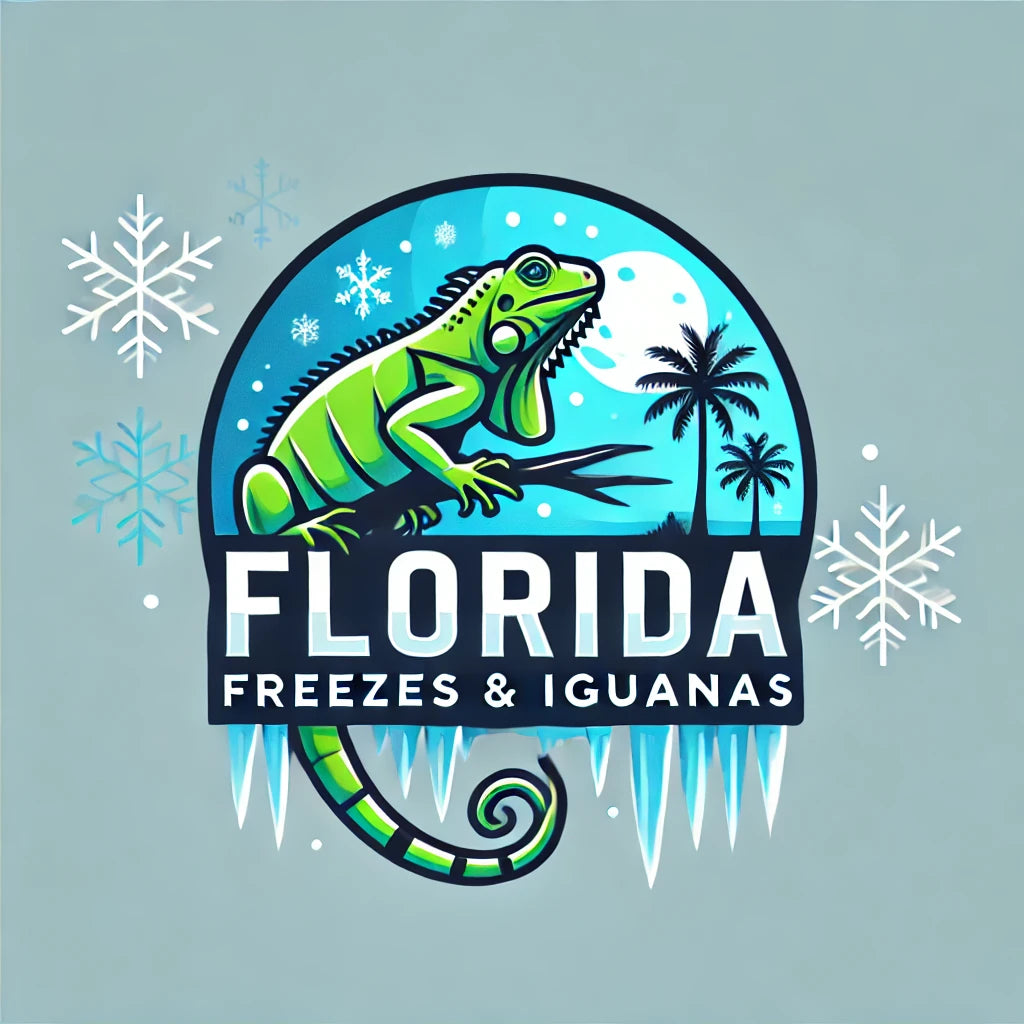
Florida Freezes and Iguanas: How Cold Snaps Impact the State’s Iconic Lizards
Share
Florida Freezes and Iguanas: How Cold Snaps Impact the State’s Iconic Lizards
Florida's warm climate is renowned for its diverse wildlife, including the prominent green iguanas that inhabit the state. However, when unexpected freezes occur, these cold-blooded reptiles face significant challenges. This article explores the history of iguanas in Florida, the effects of cold weather on them, and the broader ecological implications.

How Iguanas Became Florida Residents
Iguanas in Florida: A Brief History
Green iguanas (Iguana iguana) are native to Central and South America but were first reported in Florida in the 1960s, particularly in areas like Hialeah, Coral Gables, and Key Biscayne. Their presence is largely attributed to the pet trade, where escaped or released pets established wild populations. Over time, these iguanas have expanded their range across various counties in Florida.
Why Iguanas Thrive in Warm Climates
As ectothermic (cold-blooded) animals, iguanas depend on external heat sources to regulate their body temperature. Florida's typically warm environment provides the ideal conditions for their survival and reproduction. However, their inability to internally generate heat renders them vulnerable during sudden temperature drops.
What Happens to Iguanas During a Florida Freeze?
The Science Behind Iguanas “Falling”
When temperatures fall below 50°F, iguanas become lethargic. At around 40°F, they can enter a torpid state, leading to a temporary paralysis that may cause them to lose their grip and fall from trees. This state is not usually fatal; as temperatures rise, many iguanas revive and resume normal activities. (Source: WFLA News)
Are All Iguanas Equally Affected?
Larger, more mature iguanas tend to withstand cold temperatures better than their smaller, younger counterparts due to their greater body mass, which helps retain heat longer. Nonetheless, prolonged exposure to cold can be fatal for any iguana, regardless of size.
The Ecological Impact of Freezes on Iguanas
Temporary Population Declines
Severe cold snaps can lead to significant mortality among iguana populations, resulting in temporary declines. While this might offer short-term relief in managing this invasive species, iguanas are known for their rapid reproduction, which can quickly restore their numbers.
The Ripple Effect on Local Wildlife
Iguanas primarily feed on a variety of vegetation, including native and sometimes endangered plants. A reduction in iguana numbers due to cold weather can allow these plant species to recover. However, as iguana populations rebound, the pressure on native flora resumes, potentially disrupting local ecosystems.
How Residents and Wildlife Officials Respond
Managing Iguana Impacts During Freezes
During cold spells, residents may encounter immobilized iguanas and feel compelled to assist them. Wildlife officials recommend caution, as iguanas can become active and potentially aggressive once they warm up. It’s best to leave them undisturbed, allowing nature to take its course.
Long-Term Strategies for Invasive Species
Cold weather events highlight the vulnerability of non-native species like the green iguana. Wildlife management agencies use these opportunities to implement control measures, such as humane removal, to manage and reduce iguana populations effectively.
What Does the Future Hold for Iguanas in Florida?
Adapting to Changing Climates
Climate change may lead to warmer winters in Florida, potentially decreasing the frequency of cold events that naturally control iguana populations. This could result in unchecked population growth, emphasizing the need for proactive management strategies to mitigate their environmental impact.
Balancing Ecosystem Health
While cold snaps can temporarily reduce iguana numbers, maintaining Florida's ecological balance requires continuous effort. Collaboration among residents, wildlife officials, and policymakers is essential to develop and implement effective strategies for managing invasive species like the green iguana.
Conclusion
Florida's occasional freezes provide insight into the resilience of green iguanas and the complexities of managing invasive species. Understanding how these reptiles respond to cold weather helps in developing informed strategies to coexist with them while protecting native ecosystems.

1 comment
It should be illegal to own any animals that are not native to Florida and North America. Iguanas, snakes and snails are just a few of the problematic species that have become invasive. I support any program to have them removed.